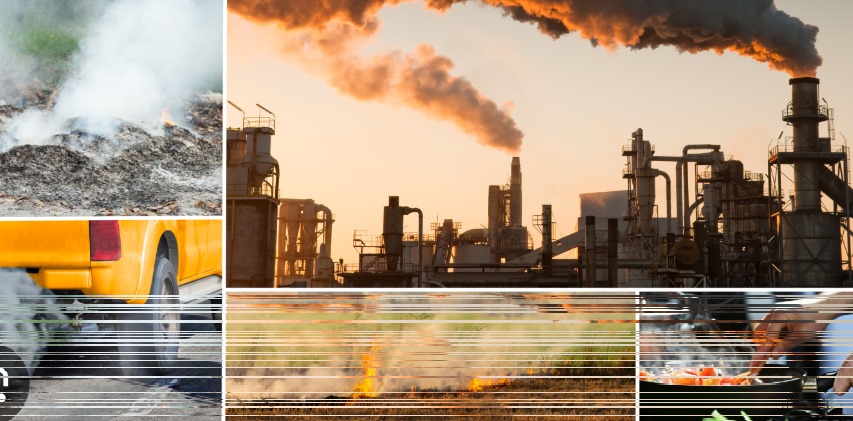Air Pollution
Air pollution is one of the most serious environmental problems affecting the world today. It occurs when harmful substances such as gases, dust, and smoke are released into the atmosphere, degrading air quality and posing serious risks to human health and the planet. The main sources of air pollution include vehicle emissions, industrial activities, burning of fossil fuels, construction work, and agricultural practices. Natural causes like wildfires and volcanic eruptions also contribute, but human activities remain the primary cause.
One of the most dangerous pollutants is particulate matter (PM2.5 and PM10), which can penetrate deep into the lungs and cause respiratory diseases such as asthma, bronchitis, and even lung cancer. Other harmful pollutants include nitrogen dioxide, sulfur dioxide, carbon monoxide, and ground-level ozone, all of which can lead to cardiovascular problems, weaken the immune system, and shorten life expectancy.
Air pollution doesn’t just affect human health—it also harms the environment. It contributes to climate change by increasing greenhouse gas emissions, particularly carbon dioxide and methane. It also damages crops, acidifies soil and water bodies, and harms wildlife. Smog, a type of air pollution that results from the reaction of sunlight with pollutants, reduces visibility and affects daily life in many urban areas.
Fighting air pollution requires collective effort. Governments can implement stricter environmental regulations, promote clean energy, and improve public transport systems to reduce vehicle emissions. Industries must adopt cleaner production methods, and individuals can contribute by using eco-friendly products, reducing car use, and conserving energy.
In conclusion, air pollution is a major environmental challenge that affects every living being. Addressing it is essential for our health, well-being, and the future of our planet. Together, through awareness and action, we can work toward cleaner air and a healthier environment.




